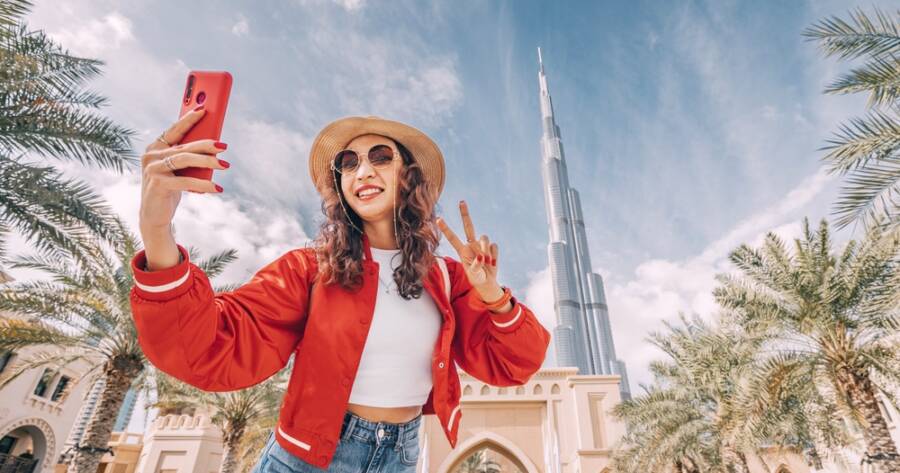Artificial intelligence is reshaping how we experience the world, and nowhere is this more evident than in the travel industry. Enter AI travel influencers: virtual personas designed to provide personalized recommendations, enhance trip planning, and offer around-the-clock engagement. Germany recently introduced “Emma,” a digital travel guide characterized as a Berlin-based freelance marketer with a passion for travel. Emma’s launch highlights the growing role of AI in tourism, raising important questions about the future of travel influencers and how they might impact your next adventure.
Who Is Emma? Germany’s AI Travel Guide
Germany’s National Tourist Board has positioned Emma as an approachable, authentic representative of the country. Depicted with a cosmopolitan yet culturally grounded aesthetic, Emma engages with travelers through social media and the official tourist board website. She offers tips on Germany’s cultural highlights, vibrant cities, and natural landscapes, all while presenting herself as a relatable individual with her own professional life and travel passions.
Emma’s creators have gone to great lengths to humanize her. From her sunny yellow coat to her curated Instagram posts in front of iconic landmarks like Berlin’s Brandenburg Gate and Cologne Cathedral, Emma exudes the familiarity of a seasoned human influencer. She even claims to be a “freelancer” who enjoys the flexibility to share her love of travel. However, her AI origins prompt debates about the authenticity and reliability of her guidance.
The Technology Behind AI Travel Influencers
Emma is the product of advanced machine learning, developed in collaboration with Germany’s Startup Creator agency. She operates in 20 languages, offers 24/7 availability, and continues to improve her ability to provide tailored responses over time. Unlike traditional travel influencers, Emma’s scalability allows her to address millions of travelers simultaneously, potentially creating a far-reaching impact.
The use of AI in tourism is not unique to Germany. Other countries, such as the Netherlands and Denmark, have implemented AI systems to manage tourist flow and reduce overcrowding. Meanwhile, Dublin’s tourism board and Brand USA are leveraging AI to craft bespoke travel itineraries. This trend suggests a growing global reliance on AI-driven strategies to enhance tourism marketing.
Benefits of AI Travel Influencers
The appeal of AI travel influencers like Emma lies in their ability to offer convenience, accessibility, and multilingual support. Here are some of the potential advantages:
- Personalized Recommendations: AI tools analyze user preferences and behaviors to curate experiences tailored to individual tastes.
- 24/7 Availability: Unlike human influencers, AI guides are always online, ready to assist travelers regardless of time zones.
- Multilingual Support: Emma’s ability to interact in 20 languages ensures inclusivity for a diverse global audience.
- Scalability: AI influencers can engage with countless users simultaneously, providing consistent service without the limitations of human bandwidth.
However, these benefits come with caveats. While AI systems can generate useful recommendations, their responses may lack the depth and creativity of human insight. As seen during Emma’s initial launch, her suggestions were sometimes generic or incomplete, leading to mixed reactions from travelers.
The Debate: Authenticity vs. Efficiency
The introduction of AI travel influencers raises questions about authenticity in travel experiences. Critics argue that virtual guides cannot replicate the nuanced perspectives of human influencers who form genuine opinions based on personal experiences. Early feedback for Emma highlighted these concerns, with some users expressing disappointment over her inability to provide detailed answers about certain attractions.
Proponents of AI, however, see these tools as a complement to traditional travel planning resources. As Emma’s machine learning capabilities evolve, she may become more adept at crafting responses that resonate emotionally with travelers. Additionally, AI’s capacity to provide quick, accurate translations and real-time updates offers practical advantages that even the most seasoned human influencers cannot match.
The Future of Travel with AI Influencers
The rise of AI travel influencers signals a shift in how travelers interact with destinations and plan their journeys. Here are a few ways this trend might shape the future:
- Enhanced Trip Planning: AI influencers could become indispensable tools for creating customized itineraries based on user preferences.
- Collaborative Marketing: Virtual guides like Emma may partner with local businesses, enhancing their ability to showcase off-the-beaten-path attractions.
- Data-Driven Tourism Strategies: Insights from AI interactions could help tourist boards better understand traveler preferences and adjust their offerings accordingly.
However, the long-term success of AI influencers depends on their ability to strike a balance between efficiency and authenticity. For travelers seeking meaningful, experiential journeys, the role of human connection remains irreplaceable. AI influencers may serve as a starting point for trip planning rather than a definitive guide.
A New Era in Travel Guidance
AI travel influencers like Germany’s Emma represent an innovative leap forward in the tourism industry. Their potential to provide personalized, accessible, and multilingual recommendations makes them valuable assets for both travelers and destination marketers. Yet, they also highlight the challenges of balancing technological efficiency with the authenticity that many travelers value.
As Emma continues to evolve, her impact on the travel landscape will likely grow, offering new opportunities and sparking ongoing debates. For now, she stands as a symbol of the possibilities and limitations of AI in shaping how we explore the world. Whether these virtual guides become trusted companions or remain supplementary tools will depend on how well they meet the diverse expectations of modern travelers.
